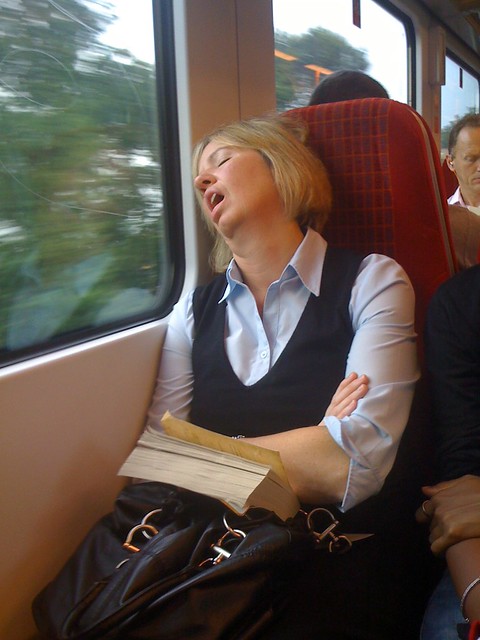 |
Photo by hellostanley  |
Continuous Positive Airway Pressure consists of sleeping with an air mask to maintain continuous air pressure in the throat. CPAP is a treatment for sleep apnea, as well as for snoring.
A wide range of dental appliances, oral devices, and lower jaw adjusters are available to alleviate snoring. Some people experience significant improvement with these oral appliances, which bring the lower jaw forward during sleep. Most of the products fit inside the mouth, but some products on the market are worn around the head and chin to adjust the position of the lower jaw.
As far as surgery goes, Thermal Ablation Palatoplasty (TAP) treats snoring and various types of Obstructive Sleep Apnea. The types of TAP include laser-assisted uvula palatoplasty (LAUP) and radiofrequency ablation (or “somnoplasty”). Laser-assisted uvula palatoplasty (LAUP) vaporizes the uvula and a portion of the palate with a laser in the doctor's office under local anaesthesia. LAUP effectively removes obstructions to the airway, which may be causing snoring or sleep apnea.
Laser-Assisted Uvula Palatoplasty has a higher success rate than Uvulopalatopharyngoplasty for sleep apnea (UPPP), but it requires a surgeon with expertise in laser procedures. Radiofrequency ablation, or somnoplasty, shrink excess tissue in the upper airway with a needle electrode. For snoring, the soft palate and uvula are reduced. For Obstructive Sleep Apnea, the base of the tongue is reduced. For chronic nasal obstruction, nasal turbinates are reduced. Somnoplasty does not require general anaesthesia.
According to many experts, while other snoring treatments may help in cases of milder snoring problems, for heavy snoring, surgically correcting obstructive conditions in the nose, pharynx, or uvula may be the only solution.





